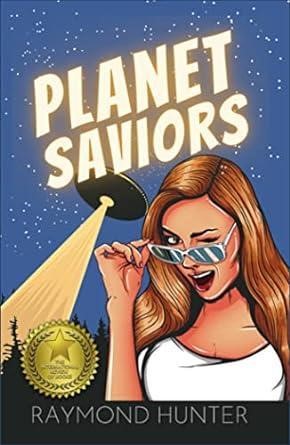Science fiction has long been a fertile ground for exploring the unknown, the futuristic, and the fantastic. Among the most enduring elements in this genre are aliens, androids, and grand adventures—tropes that have captivated readers and viewers for generations. But how can modern writers harness these classic sci-fi elements in a way that feels fresh and engaging? Let’s explore how to incorporate these iconic tropes into your novel to create a story that resonates with contemporary audiences while honoring the genre’s rich history.
-
Aliens: More Than Just Extraterrestrial Beings
Aliens in sci-fi represent the “other,” the unknown, and often, our deepest fears or hopes about what lies beyond our world. But the most memorable alien characters are those that are not simply monsters or saviors; they are fully realized beings with their own cultures, motivations, and conflicts.
To effectively leverage aliens in your novel, consider them as characters rather than plot devices. What do they want? How do their values and beliefs clash or align with those of humans? Explore themes of xenophobia, cultural exchange, and the moral complexities of encountering new civilizations. By making your aliens relatable or, conversely, by emphasizing their alienness in ways that challenge human assumptions, you can create a narrative that is both thought-provoking and entertaining.
Take inspiration from classics like The War of the Worlds by H.G. Wells, where aliens symbolize the terror of invasion and colonization, or from Arrival by Ted Chiang, where the focus is on communication and understanding. By giving your aliens depth, you ensure they serve the story rather than simply act as set dressing
-
Androids: Exploring the Nature of Humanity
Androids and artificial intelligence offer a unique lens through which to examine what it means to be human. From Isaac Asimov’s I, Robot to Philip K. Dick’s Do Androids Dream of Electric Sheep? androids have been used to explore questions of consciousness, ethics, and the soul.
When incorporating androids into your novel, think about the ethical dilemmas they might raise. Are your androids self-aware? Do they possess emotions, and if so, how do they navigate them? What happens when androids begin to question their place in the world, or when humans start to see them as more than mere machines? These questions can add layers of complexity to your story, inviting readers to ponder the boundaries between human and machine.
Consider the emotional impact of your android characters. Are they tragic figures yearning for humanity, or are they cold, calculating beings that pose a threat to their creators? By delving into these themes, you can craft a narrative that resonates on both an intellectual and emotional level.
-
Adventures: The Heart of Sci-Fi
At its core, sci-fi is often about the thrill of exploration—whether it’s venturing into deep space, traversing time, or unlocking the mysteries of the universe. The adventure trope is a powerful tool to propel your story forward, but it’s more than just action and excitement; it’s about discovery, growth, and transformation.
To make your adventure stand out, focus on the journey’s impact on your characters. How do they evolve as they face the unknown? What personal stakes are involved in their quest? Whether your characters are searching for a lost civilization, battling an alien invasion, or racing against time to prevent a disaster, the key is to balance external action with internal development.
Think of the classic space opera Star Wars, where the adventure is not just about the battle between good and evil, but also about Luke Skywalker’s journey of self-discovery. By intertwining the adventure with your characters’ personal growth, you create a story that resonates on multiple levels.

Conclusion: Crafting Timeless Sci-Fi
Incorporating classic sci-fi tropes like aliens, androids, and adventures can give your novel a familiar yet timeless appeal. The key is to use these elements thoughtfully, ensuring they serve your story and contribute to its themes. By doing so, you can create a narrative that not only honors the rich tradition of science fiction but also stands out in a crowded literary landscape. Whether you’re writing about distant worlds, sentient machines, or epic quests, remember that the best sci-fi is not just about what we imagine, but what it reveals about ourselves.
If you’re looking for inspiration on how to incorporate these timeless elements into your work, check out “Planet Saviors” by Raymond Hunter. This thrilling sci-fi adventure is a perfect example of how to blend aliens, androids, and epic quests into a story that captivates and challenges readers. Get your copy today and embark on a journey that pushes the boundaries of imagination!




